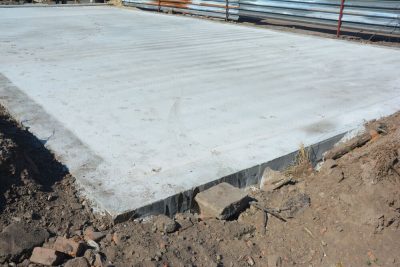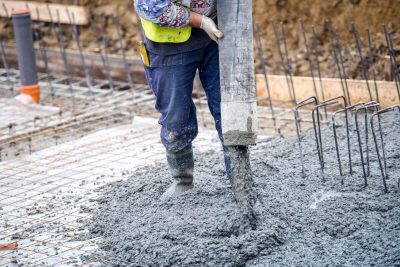CALL FOR FREE ESTIMATE (504) 475-2004
Big on Quality, Easy on Process: Your New Orleans Contractors
![]() Mon – Fri: 7AM – 8PM Sat: 8AM – 4PM
Mon – Fri: 7AM – 8PM Sat: 8AM – 4PM

CALL FOR FREE ESTIMATE (504) 475-2004
CALL FOR FREE ESTIMATE (504) 475-2004
Big on Quality, Easy on Process: Your New Orleans Contractors
![]() Mon – Fri: 7AM – 8PM Sat: 8AM – 4PM
Mon – Fri: 7AM – 8PM Sat: 8AM – 4PM

CALL FOR FREE ESTIMATE (504) 475-2004
Owning a house means owners should be aware of the different foundations, which are divisible based on soil, climate, and design. The three primary foundations are slab, crawl space, and basement foundations, each with advantages in cost, longevity, and ease of work.
Big Easy Contractors is here to assist you in determining the right foundation for your home. Give us a call today for a free consultation. We’d love to hear your ideas and help you choose the best foundation for your home.

It’s the building’s structural backbone, distributing weight and giving stability for decades. The home foundation type employed depends on considerations such as soil conditions, climate, and structure design. Here, we take a look at the varied foundation types and their special advantages.
A slab foundation, or slab-on-grade, is a 4–8 inch steel-reinforced concrete base with drainage that sits on the ground and supports the house and restricts standing water. It’s less expensive to construct than a crawl space or basement and is a favorite of cost-saving homeowners.
Slabs perform best in warm weather and hard ground, but can develop cracks when the ground moves or drainage is inadequate. Despite these challenges, they remain the most common foundation type, used in over half of American homes.
Crawl spaces lift a house 3–4 feet off the ground with concrete or wooden pillars, making plumbing and wiring easy to access. They work well in humid or flood-prone areas by improving ventilation and moisture control, but need proper sealing to prevent mold and pests. Once common on sandy soil, crawl spaces now support about 15% of homes.
Basements provide support and a living area below grade. Full basements optimize livable or storage areas, while daylight basements introduce natural light. They perform well in cold climates with deep frost lines since they shelter from freeze-thaw.
It is essential to control moisture to prevent water damage, and waterproofing incurs expense. Nevertheless, basements are used by 30% of homeowners for their adaptability.
Pier and beam foundations employ vertical piers and horizontal beams to support the house foundation, making them suitable for settlement or expansive soils. For a strong foundation to be maintained, routine maintenance should be performed in such a way that wood rot or settling will not be an issue.
Steel or concrete foundation materials that are very strong make up pile foundations, and they are buried deep in the ground. Pile foundations are important in poor soil conditions. They support heavy loads as well as giant structures, but the installation cost can be higher, typically reserved for special use.
The ground support of a home may be a crawl space or a basement. Its success is determined by things such as building codes and climate, so it is something that has to be done carefully.
Cold environments utilize basements to shield from freeze-thaw damage. Humid regions are aided with waterproofing to keep mold and erosion at bay. Slab-on-grade foundations give stability in hurricane or earthquake-prone areas. Insulation increases energy efficiency as well as reduces the bill over a period of time.
Soil type plays a big role in foundation design. Expansive soils shift with moisture, so flexible systems like pier and beam work best. Testing the soil before building helps spot issues like low strength or erosion. Good drainage, such as proper grading and downspouts, also keeps the soil stable and protects the foundation over time.
Building on sloped or uneven ground often needs stepped or pile foundations for stability. Bedrock offers strong support but increases digging costs, while loose soil requires deeper footings. Hilly terrain also raises expenses since excavation and grading take more time and equipment.
Building codes are essential for safety and durability. Codes vary by region, typically by environmental risk, such as earthquake zones or flood zones.
Adhering to these guidelines gets you out of hot water and ensures your foundation has sufficient strength and proper materials.

Effective foundation repair cost and upkeep are crucial to your structural stability as well as your financial planning objectives. Home foundations are not just what hold a house in place, but also account for a great part of building expenses. Effective upkeep does much to lengthen a foundation’s lifespan and prevent costly foundation repair in the future.
Foundation costs vary by type. Slabs are the most common at $5 to $16 per square foot. Crawl spaces range from $6 to $18, while pier and beam runs $6 to $12. Basements are the most expensive at $20 to $37.
Final prices also depend on labor, materials, site prep, and extras like excavation or soil tests, so it’s best to get a professional quote before starting.
Regular maintenance keeps the foundation healthy. Seasonal inspections identify minor issues before they escalate into major problems.
Common tasks include sealing cracks, improving drainage, or applying waterproof coatings. Repairs cost anywhere from a few hundred to several thousand dollars, but addressing problems early saves much more money in the long run.
Slab foundations are the most cost-effective, ranging from $5 to $16 per square foot. Crawl spaces and pier types are $6 to $18, and basements and poured concrete are the most expensive at $15 to $40. Prices increase with soil conditions or sloped terrain that requires additional excavation.
Foundation repair detects cracks, settling, and water damage in various foundations of houses. Minor work can range between $500 and $3,000, but structural repairs may be more than $10,000, which is why regular foundation maintenance schedules are necessary to prevent expensive foundation issues.
Foundations do more than support a home; they give it stability and longevity. Selecting the correct kind and taking care of it is crucial, and although there may be an initial expense, the right maintenance makes it last.
At Big Easy Contractors, we deploy quality materials and skilled crews to manage new construction, repairs, and renovations. We can’t wait to hear your thoughts and assist with bringing your home designs to fruition. Contact us today for a free consultation.